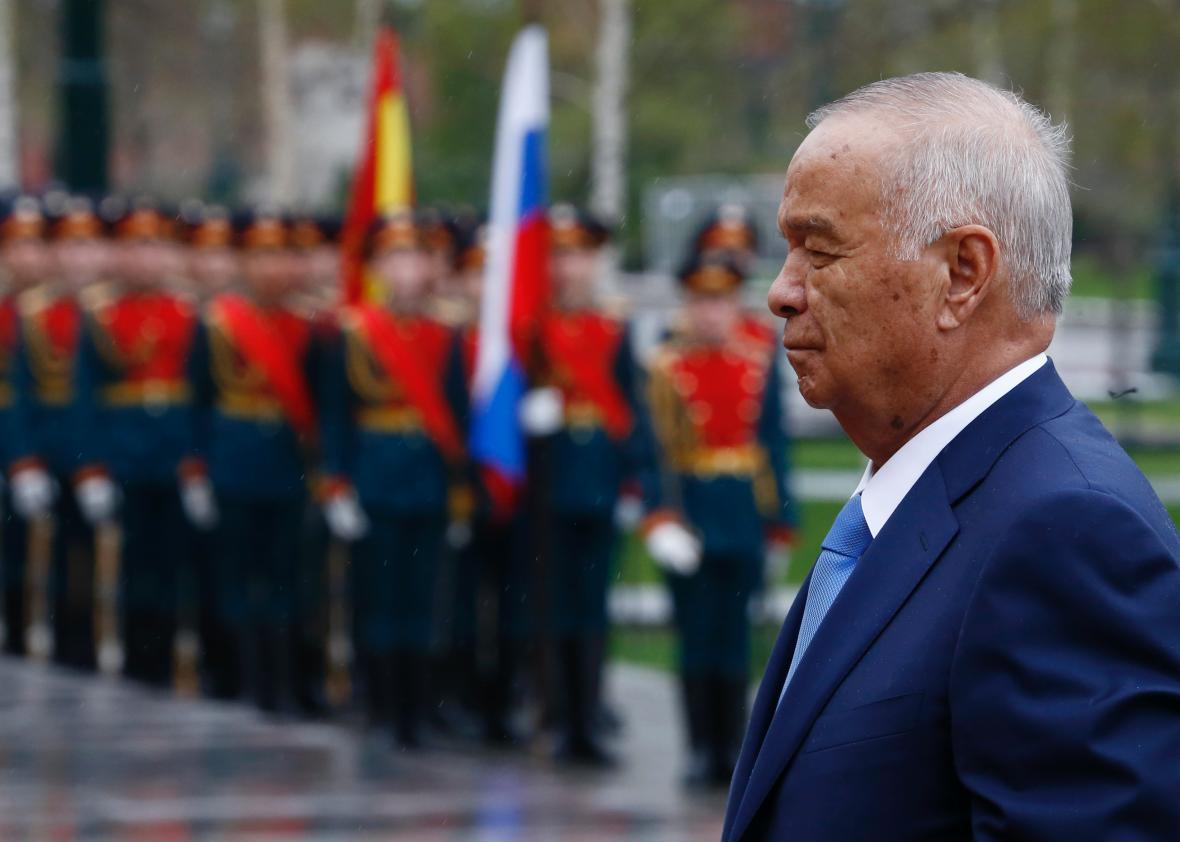Islam Karimov, who ruled Uzbekistan as one of the most repressive countries in the world for 27 years, has died, leaving no clear successor in place. Rumors have been swirling about the 78-year-old’s health for days. On Monday, his youngest daughter, Lola Karimova-Tillyaeva, confirmed on Instagram that he had suffered a brain hemorrhage. Characteristically for his tight-lipped regime, the official news was announced not by the Uzbek government but by ally Turkey. (It was later confirmed by the Uzbeks.)
Karimov has ruled Uzbekistan since he was appointed first secretary of the then-Soviet republic’s communist party in 1989. He became the independent country’s first, and so far only, president in 1991. He has served four terms despite the country’s constitution limiting him to two. His death leaves Kazakhstan’s Nursultan Nazarbayev, Belarus’ Aleksandr Lukashenko, and Tajikistan’s Emomali Rahmon as the last of the first generation of post-Soviet strongmen still in office.*
Karimov avoided appointing a successor and there’s no obvious candidate waiting in the wings. He was once thought to be grooming his older daughter Gulnara—formerly a philanthropist, business tycoon, and part-time pop star under the name Googoosha—but the two had a falling out and she’s been under house arrest on a number of corruption charges since 2014. A 2005 U.S. diplomatic cable released by WikiLeaks described her as the “single most hated person” in Uzbekistan. The New York Times suggests that Karimov’s wife, Tatyana, and the head of the country’s secret police are likely to play key roles in choosing a successor but are unlikely to take the gig themselves.
Under Karimov’s rule, virtually all political opposition and independent media were eliminated. The use of torture was rampant, including, most infamously, the boiling alive of prisoners. Cases of forced and child labor in the country’s cotton fields were well-documented. In the most notorious incident of his rule, hundreds of unarmed civilians, including children, were gunned down during peaceful protests in the city of Andijan in 2005.
The U.S. criticized the Uzbek government after Andijan, but for most of his tenure Karimov was supported by Washington, particularly during the height of the war in Afghanistan, when the country was a crucial cog in the massive and complex global system to supply U.S. troops in the neighboring country. In 2012, the Obama administration waived a ban, in place since 2003—two years before Andijan—on military aid to Uzbekistan. Karimov visited the White House during the Bush administration, and Hillary Clinton stopped by capital city Tashkent twice as secretary of state. John Kerry visited last year, touting Uzbekistan as an ally in combating Islamic extremism and a potential economic partner. The State Department’s reports on Uzbekistan’s human rights practices are invariably withering, but Karimov, quite reasonably, drew the lesson that successive U.S. administrations aren’t willing to do much to back up that criticism.
America tried isolating Karimov and it tried engaging him, and neither did much to change his behavior. His successor will be a new American president’s problem.
*Correction, Sept. 4, 2016: This post originally misidentified a list of post-Soviet leaders who have ruled since the end of Communism. It has been updated to include Tajikistan’s Emomali Rahmon.
